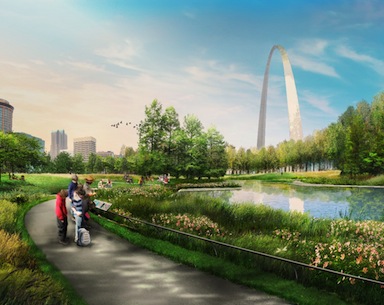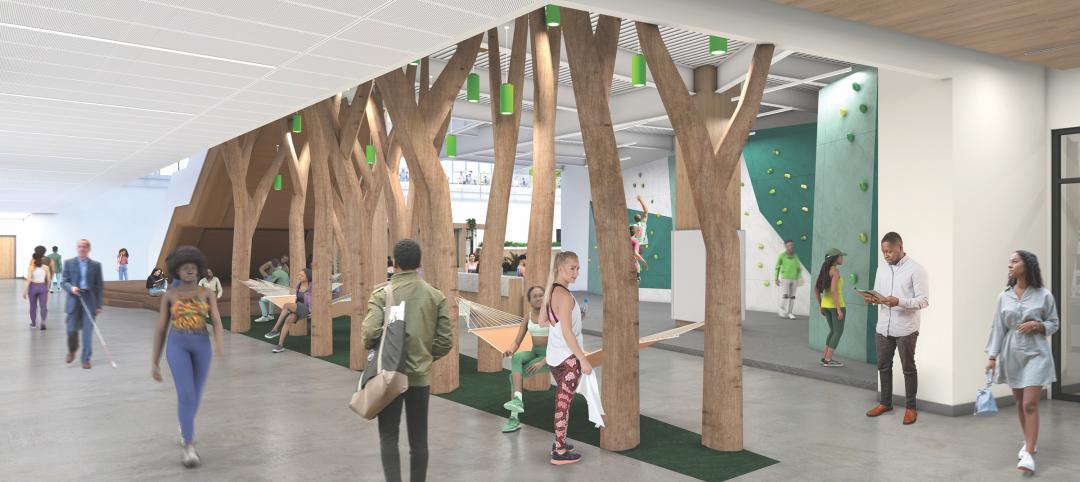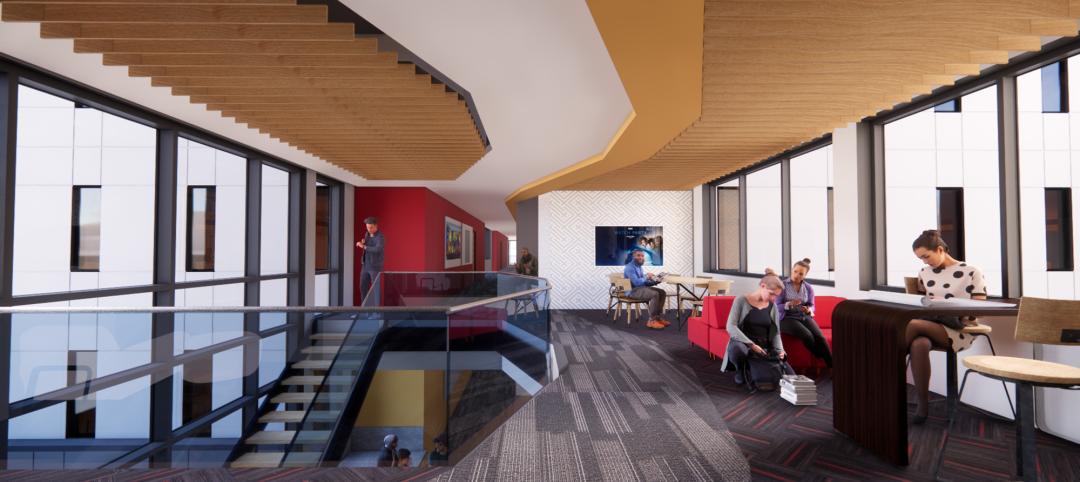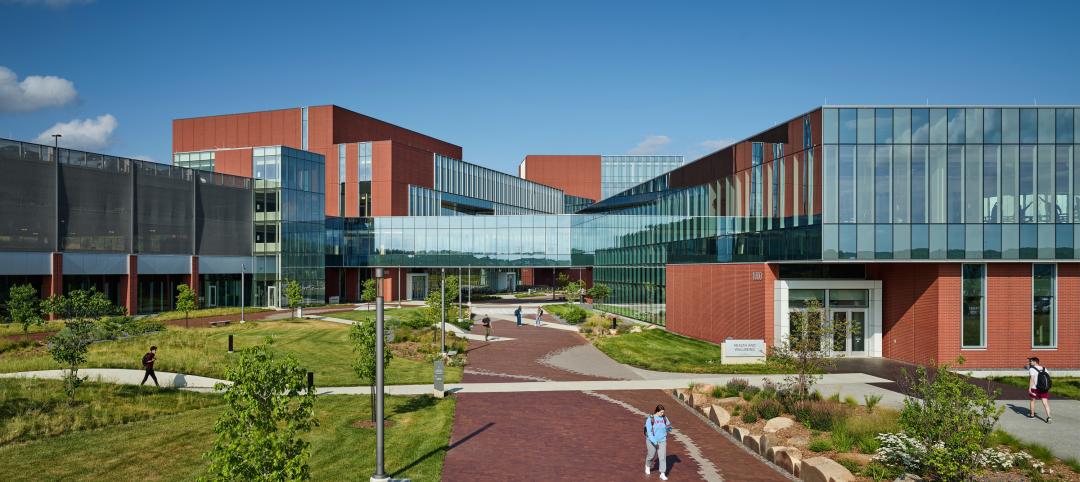ST. LOUIS – Landscape architect Michael Van Valkenburgh and a multidisciplinary team of experts in “urban renewal, preservation, commemoration, social connections and ecological restoration” have been picked for the planning phase of The City+The Arch+The River 2015 International Design Competition.
The jury chose the MVVA Team over four others competing to enliven the area around the Gateway Arch and connect it to downtown St. Louis, the Mississippi River and the Illinois bank. Based in New York, MVVA’s portfolio includes the redesign of Pennsylvania Avenue at the White House, the design of Brooklyn Bridge Park and many other prominent projects. (Please see the MVVA Team profile at end of this document for information on expertise and accomplishments of its members.)
In its final report, the competition jury called the MVVA Team “a strong team with solid methodology.” As a team, “they convey intelligence and provide clear technical support for their design proposals,” the jury report states.
“MVVA is an outstanding team that presented a winning combination of the ambitious and the manageable,” said Tom Bradley, Superintendent of the Jefferson National Expansion Memorial. “They showed great reverence for the beauty and significance of the existing site, while suggesting improvements and attractions in line with our competition goals. We’re excited to start planning.”
Over a 90?day period, the team will work in partnership with the sponsors, the City of St. Louis, the National Park Service and others to further define program requirements; begin developing a design that takes into account the feasibility and practicality of proposed solutions; create a construction budget and fundraising plan; and define the delivery expectations from now until 2015.
“Between now and January, we will be challenging the MVVA Team to rise to the challenge to do what’s best for the city, for the region and for this national park,” said St. Louis Mayor Francis Slay. “The Arch is a national treasure, but it is intensely personal to people in and around St Louis. We will be working with Michael and his team, with continued input from the community and the experts, on creating the best solutions for the Arch grounds and the neighboring area.”“There is huge potential for the Illinois riverbank area and collaboration on both sides of the river,” said Dr. Vaughn Vandegrift, Chancellor of Southern Illinois University at Edwardsville, who serves with Bradley, Mayor Slay and others on the competitions governing group. “Our discussions regarding Illinois intensified and evolved even after the competition was launched. There are opportunities for the Illinois riverbank area now that didn’t exist when we gave instructions to the teams. We will work closely with the MVVA Team to evaluate what they have proposed and expand from there.”
Strong support for project implementation was shared last month in a letter to competition organizers from the bi?partisan Missouri and Illinois congressional delegations and during a visit by the U.S. Secretary of the Interior, Ken Salazar, who oversees the National Park Service and pledged to get the project done.
“This is another critical step in a continuum that began with the review of the park’s general management plan and continued on to the call for a competition, the skillful execution of the competition itself, today’s announcement of a winning design team, the establishment of an implementation team and a concept from which we can build,” said Bradley. “We are looking to this effort as a model for both public?private collaboration and improved connections between cities and our urban national parks.”
The MVVA Team’s design concept narrative describes their vision for the redesigned park as a “centerpiece of civic culture, an engine of regional economic growth, a showcase for sustainable ecological restoration and a celebration of the national significance of this historic place.”
The sponsoring group, the MVVA Team and others will host intensive reviews and workshops this fall to analyze the design concept and conduct a more detailed design exploration. At a minimum, the study will focus on the review of the technical advisory group, the impact on related downtown park properties and the Illinois side of the river, traffic and transportation and federal compliance issues.
The sponsors also will study issues relating to cost and construction, traffic, financial resources and federal compliance.
A monthly web?based progress report will update the public throughout the implementation period.
The eight?member jury counted among its members a Pulitzer Prize?winning architecture critic, a professor in the humanities, a former deputy director of the National Park Service, a real estate economist, a museum curator and renowned architects and landscape architects.
The jury shared its report and team rankings with the competition sponsor and managers after a series of presentations and tours of the community, competition site and exhibit of design concepts led by the sponsors and culminating in public presentations by the teams late last month.
The project will be constructed by Oct. 28, 2015, the 50th anniversary of the completion of the Arch.
About the Competition
The goal of The City+The Arch+The River 2015 international design competition is to create an iconic setting for the international icon, the Gateway Arch, honoring its immediate surroundings and weaving connections and transitions from the city and the Arch grounds to the Mississippi River, including the east bank in Illinois.
The competition, launched Dec. 8, 2009, has had three stages. Portfolio submissions in Stage I included a description of the lead designer, a statement of design intent and philosophy of the lead designer, a profile of the design team and examples of their work. From the original 49 submissions, in February 2010, the jury picked nine to enter Stage II.
Stage II involved the formation of the complete teams capable of executing the project, submission of required qualifications and a jury interview. This phase culminated in early April 2010, when the teams met with the jury and the field was narrowed to five teams.
On April 28, 2010, at the beginning of Stage III, the finalist teams presented their design philosophies and examples of past work at a public “Meet the Design Teams” event in downtown St. Louis, hosted by sportscaster Joe Buck. This event was followed by a three month design concept competition to explore the finalists’ design approach and test their working methodology.
The design concepts went on display on Aug. 17, 2010, at the Arch and in an exhibit traveling throughout the bi?state region. Visitors were able to voice opinions about the design concepts in the first week of the exhibit. A synopsis of the more than 600 comments received was shared with the jury. The finalist teams presented their design concepts to the jury in public session on Aug. 26, 2010.
The final project design, budget and implementation plan will be presented in January 2011. The project will be constructed by Oct. 28, 2015.
The new design is called for in the National Park Service’s General Management Plan for the Jefferson National Expansion Memorial, which was developed with extensive public input over an 18?month period and approved Nov. 23, 2009.
The competition is sponsored by the CityArchRiver 2015 Foundation, which includes National Park Superintendent Tom Bradley, St. Louis Mayor Francis G. Slay, community leaders from Missouri and Illinois, academics, architects and national park advocates.
Financial contributions to the CityArchRiver 2015 Foundation are being handled by the Greater St. Louis Community Foundation, a public charity with more than $140 million in charitable assets and representing more than 350 individual funds.
Donors to the competition include: Emerson, Gateway Center of Metropolitan St. Louis (Malcolm W. Martin Memorial Park), Peter Fischer, Emily Rauh Pulitzer, Civic Progress, Wachovia Wells Fargo Foundation, Danforth Foundation, John F. McDonnell, Bryan Cave LLP, Greater St. Louis Community Foundation, National Park Foundation, Monsanto, Alison and John Ferring, Bank of America, David C. Farrell and others who choose to remain anonymous. The traveling exhibit was sponsored by Civic Progress member companies.
Related Stories
Construction Costs | Oct 16, 2024
Construction Crane Index: Most major markets’ crane counts increase or hold steady in third quarter
Rider Levett Bucknall’s (RLB’s) latest Crane Index and Quarterly Cost Report shows continued decreasing cost inflation and crane counts increasing or holding steady in 10 of the 14 major markets it surveyed. The national average increase in construction costs was 1.07%, the lowest it’s been in the last three years.
AEC Tech | Oct 16, 2024
How AI can augment the design visualization process
Blog author Tim Beecken, AIA, uses the design of an airport as a case-study for AI’s potential in design visualizations.
University Buildings | Oct 15, 2024
Recreation and wellness are bedfellows in new campus student centers
Student demands for amenities and services that address their emotional and mental wellbeing are impacting new development on college campuses that has led to recreation centers with wellness portfolios.
Higher Education | Oct 14, 2024
Higher education design for the first-gen college student
In this Design Collaborative blog, Yogen Solanki, Assoc. AIA, shares how architecture and design can help higher education institutions address some of the challenges faced by first-generation students.
Performing Arts Centers | Oct 10, 2024
Studio Gang's performing arts center for Hudson Valley Shakespeare breaks ground
A new permanent home for Hudson Valley Shakespeare, a professional non-profit theater company, recently broke ground in Garrison, N.Y. The Samuel H. Scripps Theater Center includes a 14,850 sf performance venue that will serve as a permanent home for the theater company known for its sweeping open-air productions of classics and new works.
Sustainable Design and Construction | Oct 10, 2024
Northglenn, a Denver suburb, opens a net zero, all-electric city hall with a mass timber structure
Northglenn, Colo., a Denver suburb, has opened the new Northglenn City Hall—a net zero, fully electric building with a mass timber structure. The 32,600-sf, $33.7 million building houses 60 city staffers. Designed by Anderson Mason Dale Architects, Northglenn City Hall is set to become the first municipal building in Colorado, and one of the first in the country, to achieve the Core certification: a green building rating system overseen by the International Living Future Institute.
3D Printing | Oct 9, 2024
3D-printed construction milestones take shape in Tennessee and Texas
Two notable 3D-printed projects mark milestones in the new construction technique of “printing” structures with specialized concrete. In Athens, Tennessee, Walmart hired Alquist 3D to build a 20-foot-high store expansion, one of the largest freestanding 3D-printed commercial concrete structures in the U.S. In Marfa, Texas, the world’s first 3D-printed hotel is under construction at an existing hotel and campground site.
University Buildings | Oct 9, 2024
Des Moines University Medicine and Health Sciences opens a new 88-acre campus
Des Moines University Medicine and Health Sciences has opened a new campus spanning 88 acres, over three times larger than its previous location. Designed by RDG Planning & Design and built by Turner Construction, the $260 million campus features technology-rich, flexible educational spaces that promote innovative teaching methods, expand research activity, and enhance clinical services. The campus includes four buildings connected with elevated pathways and totaling 382,000 sf.
Student Housing | Oct 9, 2024
University of Maryland begins work on $148 million graduate student housing development
The University of Maryland, in partnership with Campus Apartments and Mosaic Development Partners, has broken ground on a $148.75 million graduate student housing project on the university’s flagship College Park campus. The project will add 741 beds in 465 fully furnished apartments.
Healthcare Facilities | Oct 9, 2024
How healthcare operations inform design
Amanda Fisher, Communications Specialist, shares how BWBR's personalized approach and specialized experience can make a meaningful impact to healthcare facilities.

















